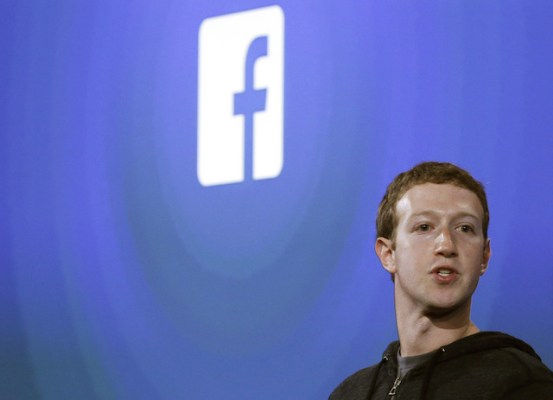For millions of people, Facebook is the internet — but many of those who rely on the social network for news and views may not be aware that Facebook isn’t immune to internet censorship itself.
That’s become apparent in Thailand, where Facebook is blocking content from a number of users following an apparent request from the government. Thailand’s lèse-majesté law prevents criticism of the country’s royal family, and it looks like it is being used to suppress postings from a number of high-profile users who are writing about the transition to a new king, including journalist Andrew MacGregor Marshall. The former Reuters correspondent, now a lecturer at Edinburgh Napier University, is already well known to Thai authorities. His 2014 book on the Thai royal family was banned and branded a “danger to national security and peaceful and orderly society.”
TechCrunch has independently confirmed that, as MacGregor Marshall noted, at least one of his posts is not available in Thailand but can be read outside of the country. Marshall McGregor’s profile and the rest of his feed remain visible in Thailand. The post in question is from late December and, while it isn’t clear when it was blocked, a reposting made this week was visible in Thailand at the time of writing.
Facebook declined to comment for this story.
This isn’t the first instance of the social network upholding local law in Thailand. Its own data shows that the firm restricted access to 10 pieces of content in the country in the first half of 2016. Facebook’s latest privacy report for the second half of last year is due to be released soon.
In its 2016 report, Freedom House, a U.S. think tank that monitors global freedoms, noted that Thailand’s internet and media are “not free.” Thailand’s junta government took power in a 2015 coup — which included a half hour blockage of Facebook — and it has continued to suppress criticism online.
“Internet freedom declined in 2016 as the military leadership continued its efforts to codify censorship and surveillance powers through legislation,” Freedom House wrote.
The situation has intensified as new King Maha Vajiralongkorn has ascended to the throne following the death of his father, the much revered King Bhumibol Adulyadej, in October. Just last month, Thai authorities paid a visit to the BBC’s offices in capital city Bangkok in response to the news organization’s reporting of the newly appointed monarch.
Facebook has failed to deal with the issue of fake news recently, particularly around the U.S. election, while a number of high-profile censorship incidents, including the blocking of an iconic photograph of a girl fleeing a napalm attack during the Vietnam War, have highlighted its struggle to realize its responsibilities and influence as a media company.
In this case, however, complying with Thailand’s lèse-majesté is very much deliberate. Facebook CEO Mark Zuckerberg is driven by a vision of “connecting the world” and, though he has said a compromise is necessary in the case of countries like China where free speech is restricted, it is hard to see how that vision fits with kowtowing to a law that has gotten Thai people jailed for Facebook comments, or even merely receiving a message on the social network.
Facebook is the largest platform, but it is far from the only target for Thai censors. The government has previously taken action against content on YouTube, the Daily Mail, and chat app Line, among many other online platforms. Ministers have even gone so far as to claim that they can monitor conversations on Line, which has over 20 million users in Thailand. Japan-based Line, which is listed on the NYSE, rejected the claim as untrue.
